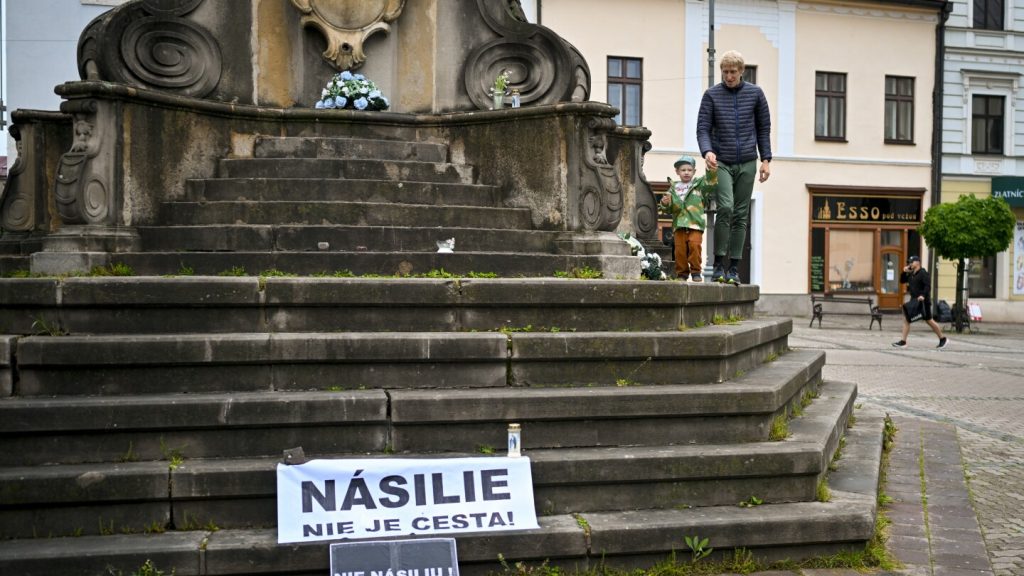Slovak Prime Minister Robert Fico was shot this week, sparking shock across the country. The incident highlighted the deep divisions within Slovak society, with polarized views on whether to align with traditional values and Russia, or embrace liberal ideals and move closer to the West. Fico’s return to power in September, campaigning on a nationalist and EU-skeptic platform, has fueled large protests against his policies. Fico’s decision to cease providing weapons assistance to Ukraine, seeking closer ties with Moscow, alarmed many who support a future aligned with the West.
Slovakia, a country that joined the EU and NATO in 2004, has a history of division stemming from economic and social inequities during its transition to a democratic market economy. Political scientist Grigorij Meseznikov attributes the growing hostilities in recent years to the hostile communication strategies of Slovak politicians. Fico’s pro-Russian national populism has clashed with the pro-liberal democratic forces in the country, leading to protests against his policies, such as overhauling the penal system and taking control of the public broadcaster. Fico has blamed the media for fueling divisions and referred to journalists and liberal politicians as “rats.”
Disagreements in Slovakia escalated amid the COVID-19 pandemic, as many rejected vaccinations and lockdowns. Fico, a vocal critic of the pandemic response, was detained in 2021 for organizing an anti-government rally during lockdown. The invasion of Ukraine by Russia further divided pro-Western Slovaks from those preferring a more conciliatory approach towards Russia. Government officials have criticized protesters and opposition politicians, accusing them of servility to a perceived Western liberal order led by the EU and the United States. The societal division in Slovakia is described as populists versus progressives, with blame being shifted between both sides for polarizing the society.
Following the shooting of Prime Minister Fico, political allies have sought to blame their opponents for the attack. Interior Minister Matus Sutaj Estok claimed that the shooting suspect cited dissatisfaction with Fico’s policies as motivation, blaming liberal politicians and the media for inciting the attack. Estok warned of a potential civil war, viewing the assassination attempt as confirmation of growing tensions. Some Slovak leaders, like outgoing President Zuzana Caputova, have called for unity and the avoidance of assigning blame. However, others directly attribute Fico’s hostile narratives for dividing and radicalizing society, pointing to Russian propaganda as influencing the societal division.
The attack on Fico has prompted reflection within Slovak society, with calls for a less hostile environment and self-reflection from both sides. The tense atmosphere of hatred is viewed as a collective issue, with all the country’s leaders sharing responsibility. The deep divisions within Slovak society are seen as a result of Fico’s divisive rhetoric, with some residents describing a Russian information war influencing the population. Despite efforts to allay tensions and avoid assigning blame, the impact of the attack on Slovakia’s political landscape remains uncertain. The country faces a critical moment of introspection and potential reconciliation amidst ongoing polarization and unrest.


